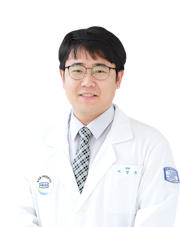
Interview with a professor who won the 2024 Doosan Yonkang Academic Awards - Surgeon’s division
Lee Young Joo, Department of Surgery
Seoul St. Mary’s Hospital, The Catholic University of Korea
Q. Once again, congratulations on being selected as the winner of the ‘Doosan Yonkang Academic Awards - Surgeon’s division’.
A. I am deeply honored and delighted to receive the prestigious Doosan Yonkang Academic Awards – Surgeon’s division. I would like to express my gratitude to the committee members and professors involved in the review and selection process. My sincere thanks go to Professor Bae Soo Youn for her invaluable guidance in writing this paper and to Professor Song Gyo Young for motivating me to apply for this award.
Q. Among the many fields of medicine, I would like to hear the reason why you chose “surgery” as your major.
A. During my clinical internship and resident training, I was inspired by the dedication and skill demonstrated by senior residents and professors, which motivated me to pursue a career in surgery. Although the overnight emergency surgeries were physically demanding, seeing patients recover and leave the hospital healthy brought me a profound sense of fulfillment and appreciation for the field, leading me to choose it as my specialty.
Q. It would be grateful if you are able to explain the field you are working on, and the importance of the research.
A. Breast cancer is known for having relatively better treatment outcomes compared to other types of cancer, with a considerably long life expectancy following diagnosis. This is largely due to the rapid advancements in various adjuvant therapies in addition to surgery. However, the complexity and diversity of these treatments also lead to a wide range of associated side effects. As life expectancy increases, many patients must endure these side effects for extended periods. The quality of life for cancer patients is a crucial factor that has both direct and indirect impacts on prognosis.
Most breast cancer patients are women, and in South Korea, the proportion of young breast cancer patients is still higher than in Western countries. Many of these patients suffer long-term consequences from side effects of chemotherapy and long-term hormonal therapy, such as loss of fertility, menopausal symptoms, and other issues. We are conducting research to find appropriate treatments that allow patients to receive effective care while maintaining a good quality of life. Through this research, we aim to contribute to improving the lives of breast cancer survivors.
Q. Could you please provide an explanation of the award-winning research paper?
A. Breast cancer is classified into four main subtypes based on hormone receptor status and HER2 overexpression, with each subtype having different treatment approaches and varying recurrence timing and patterns. This study analyzed the impact of breast cancer subtypes and recurrence timing (early recurrence: within 5 years of diagnosis, late recurrence: after 5 years of diagnosis) on overall survival in 2,730 patients. Early recurrence was identified as a factor that worsens prognosis across all subtypes, while late recurrence was found to be a significant negative prognostic factor only in the luminal B subtype. Therefore, it is concluded that for patients with luminal B subtype, proactive and careful long-term monitoring for late recurrence after 5 years is required, along with the need for effective treatments targeting these patients.
Q. I would like to inquire about your plans as a researcher and surgeon.
A. Having completed my residency and gone through military service and fellowship training, I have only recently started treating my own patients. I still have much to learn and feel that I have a lot of room for improvement. I consider it a great honor and happiness to be able to dedicate myself to patient care and research as a young surgical professor, thanks to the countless surgical mentors who have worked tirelessly in much more challenging environments with a focus solely on their patients. They laid the groundwork for us to provide care in better circumstances.
Currently, medical students and residents are facing difficult times, and I want to make every effort to preserve and advance what has been passed down to us so that they can return to medicine and surgery with renewed interest.
Q. Lastly, could you please share a few words of encouragement or advice for your fellow surgeons who are applying for the ‘Doosan Yonkang Academic Awards - Surgeon’s division’?
A. I feel both honored and somewhat apologetic to be selected among the many distinguished professors who have made remarkable achievements in the field of surgical academia. I hope that many will challenge themselves for the ‘Doosan Yonkang Academic Awards – Surgeon’s division’, finding great joy in the process and motivation for their clinical practice and research. Thank you.




